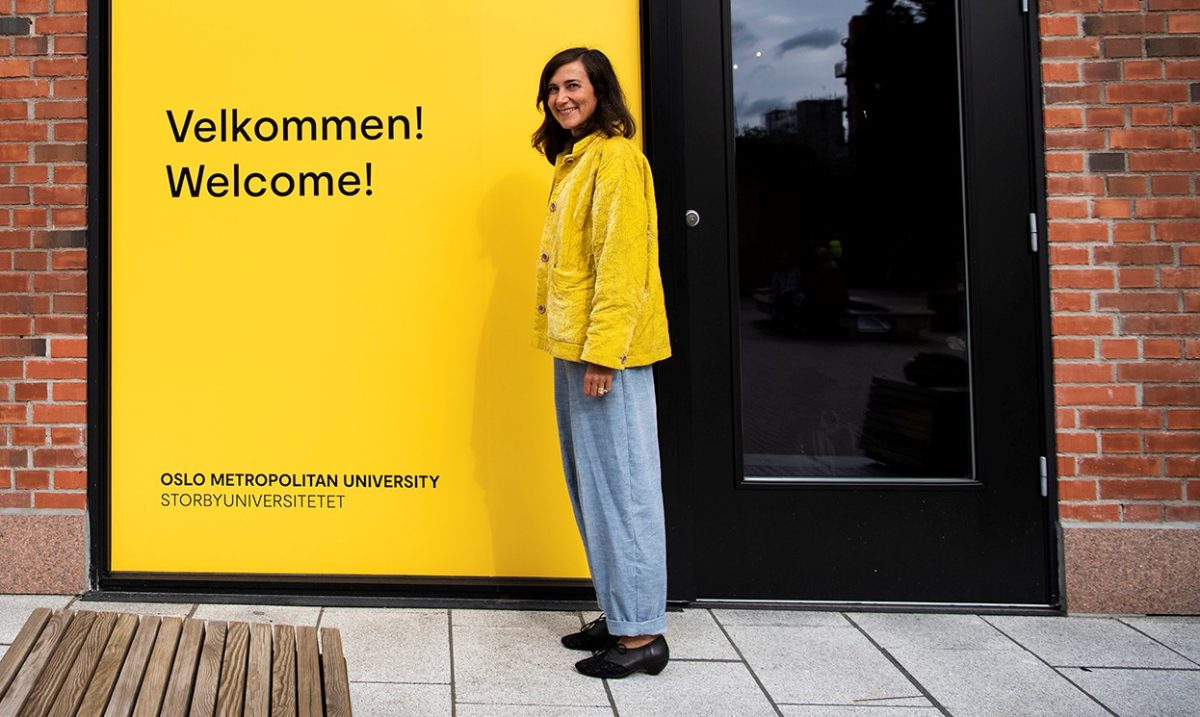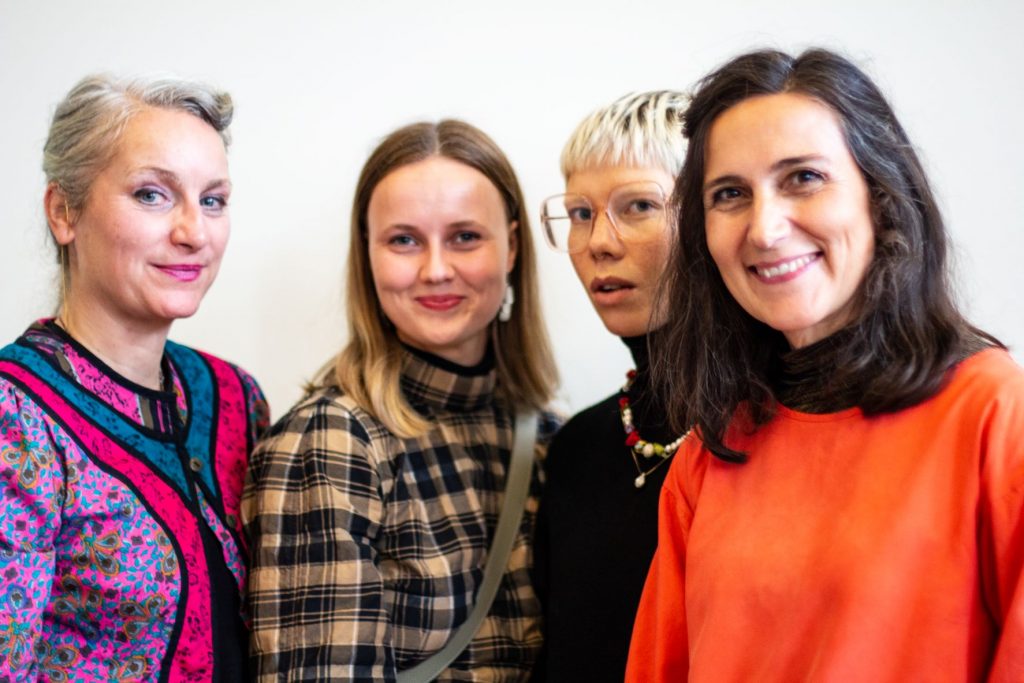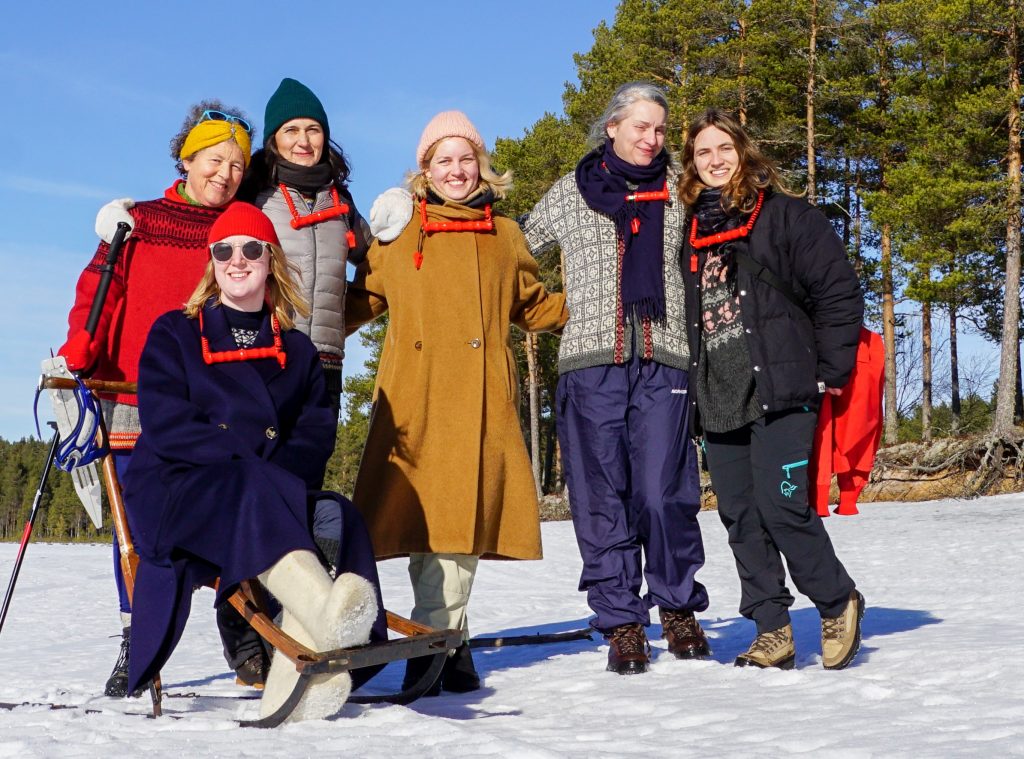A conversation with Kate Fletcher

First of all, we would like to welcome you as a colleague! This is a very happy development for Consumption Research Norway (SIFO) and our clothing research group, alongside of course, the work in the projects you have the lead of work packages. So firstly: welcome!
For such a long time, we have associated you with London College of Fashion, and now you are affiliated with three Scandinavian institutions. Is there a special affinity to this region that has resulted in this tripling of your affiliation?
Well, it is a very beautiful region! Seriously, there has been a steady – and growing – presence in sustainability, design, fashion and textiles work in the Nordic countries over the last twenty-five years and I am now honoured to be able to connect with this work in three different institutions.
Are the other two positions very different from your role at SIFO?
All the roles are fairly distinct, drawing on different parts of my knowledge and skills. Some are more design-based, others more strategic, while the work at SIFO is more specifically linked to research projects.
Your research project, Craft of Use, brought in a new perspective on how we use our clothes in a myriad of ways; that has inspired many to rethink their relationship with clothes. How did this research lead to for example Earth Logic and your input to new research? Can you give us a ‘thread’ that weaves through your research?
The Craft of Use project started out in 2008 as a way to glimpse what ‘fashion’ might look like ‘post growth’. The idea was that in a world beyond consumerism when clothes are no longer bought mindlessly, the skills of using garments well, with dedication and care, take on new significance. These skills would become the currencies of post growth fashion, they also emphasise practices not just products and users, not just garments. Through a hybrid ethnographic-design research project the Craft of Use project connected the everyday (the lifeworld of the user), systemic questions about taken-for-granted economic and social structures, and relational potential of design to act and connect differently. Earth Logic is, I guess, an obvious continuation of this approach. It also uses a similar action research methodology and is similarly radical.

In the two projects Lasting and CHANGE, where you lead two work packages, you are looking outside the Global North concept of consumption and fashion/clothing practices with a new lens or kaleidoscope. Is this challenging to you personally and also research in general?
It is both personally challenging, and challenging to research, and necessarily so. For too long the dominant ideas in fields like fashion and sustainability have been assumed to be universal, with the assumption that no one sits outside of these ideas, beyond this epistemic territory. But with this assumption comes erasure, and denial of other perspectives, realities, possibilities etc. Looking to more plural perspectives tackle some of the biggest subjects like Western hegemony, human exceptionalism, patriarchy, but it also asks about small practical things like how writing items in a list introduces a hierarchy, which in turn introduces an inadvertent priority or power relation.
Some of the focus in Mathilda Tham’s and your Earth Logic, is about a more localized and diverse approach to clothing and fashion. I personally find this fascinating, and it resonates with so much of what needs to be in place in order “repair” our current system, if we can even repair it. Do you have any thoughts at all that you are willing to share, on systemic change within the current economic system?
Community based action is seen, time and again, as the radical basis of sustainability change. For it is in local places that lives are lived. One of the strands of work that is ongoing within Earth Logic is an exploratory project around a local fashion government. In Earth Logic, when we talk about government and governance people often think about big government, like what happens at national or pan-national levels, but what Earth Logic is interested in is at a different level. Our interest is the small sets of individual, household, community and regional decisions around organising and regulating clothing provision and expression. To be clear, this is not about what can be produced in a region, but more about how to meet needs with the clothing that we already have. This for me is systemic change. I’ll let you be the judge if it sits within the current system or not.
What do you feel should be further explored at SIFO, what themes do you see as unaddressed?
One of the critical challenges for fashion and sustainability is to tackle rising consumption volumes. I would like to get straight to heart of this challenge and to explore consuming less, and to do that with colleagues with expertise from across the SIFO family.

Do you feel research councils understand what the actual problems are? Do you have a wish for a call you haven’t seen?
In general terms it seems research councils prefer funding projects that are similar to existing ones, that use related thinking, and aligned with established economic priorities. What I hope for is that bolder, riskier, farsighted projects will also be funded. Such projects generally create the compost that other projects then go on to sow the seeds of change in. And without the compost, other seeds of future projects will not germinate. So, this is ultimately an investment in the future.
Consumption, as a word and a concept; what do you find the most problematic and what do you find to be valuable?
Etymologically, I find the term consumption problematic, meaning, as it does, “to use up”. And in the fashion context, its strong association with the culture of consumption is antithetical to ecological balance. Yet inspired by the words of the poet and farmer Wendell Berry, I am also seeing consumption, as about husbandry. That is, the name of all practices that sustain life by connecting us conservingly to our places and our world. It is the art of keeping tied all the strands in the living network that sustains us.